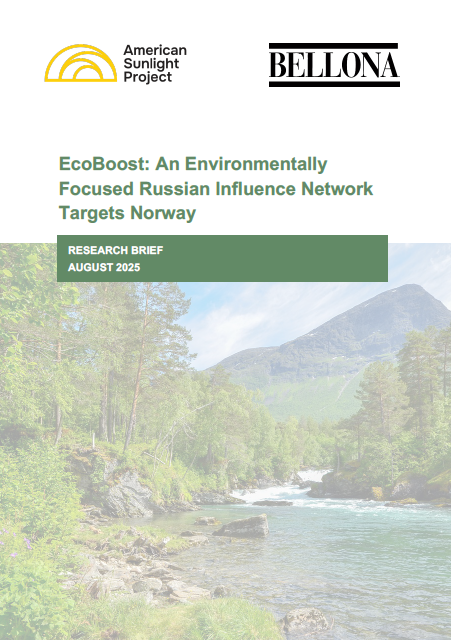
EcoBoost: An Environmentally Focused Russian Influence Network Targets Norway
The American Sunlight Project and the Bellona Foundation show in this brief how the Russian bot network EcoBoost systematically manipulates climate a...
Publication

Authors: Keith Whiriskey
Publisher: Bellona Europa
Publication
The European energy supply is changing, with renewables supplying more of the energy needs of business and consumers. However, much of the renewable energy being deployed is intermittent sources of electricity, only
providing to the grid when resources such as wind, solar or wave are available.
Liberalisation of the electricity market has brought with it the ‘merit order’ – determining who supplies power to the grid and when. In simple terms this means that the electricity production plants with lowest cost production are chosen first to sell electricity to consumers, with more expensive plants coming on line as consumers need more electricity. Renewable sources are first in line in the merit order, as renewable energy will be dispatched to the grid whenever the wind blows or the sun shines. Due to, amongst other things, a lack of electricity storage capacity, fossil power is required to remain in backup and step in when renewables cannot generate.
This interaction is leading to market failures and potentially system failures. Operators claim that competition from renewables has begun to severely reduce the commercial viability of some fossil generation capacity. Fossil
power plants providing this back-up capacity faces two options: Being mothballed due to insufficient revenues, or receiving a subsidy in the form of capacity payments simply to be kept alive and available to prevent blackouts. However, capacity payments are a poor treatment for the current failings of the electricity market – such measures
put both Europe’s climate and single market objectives at risk.